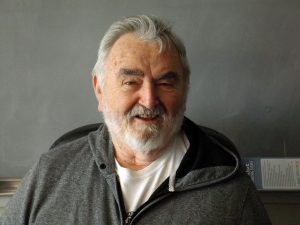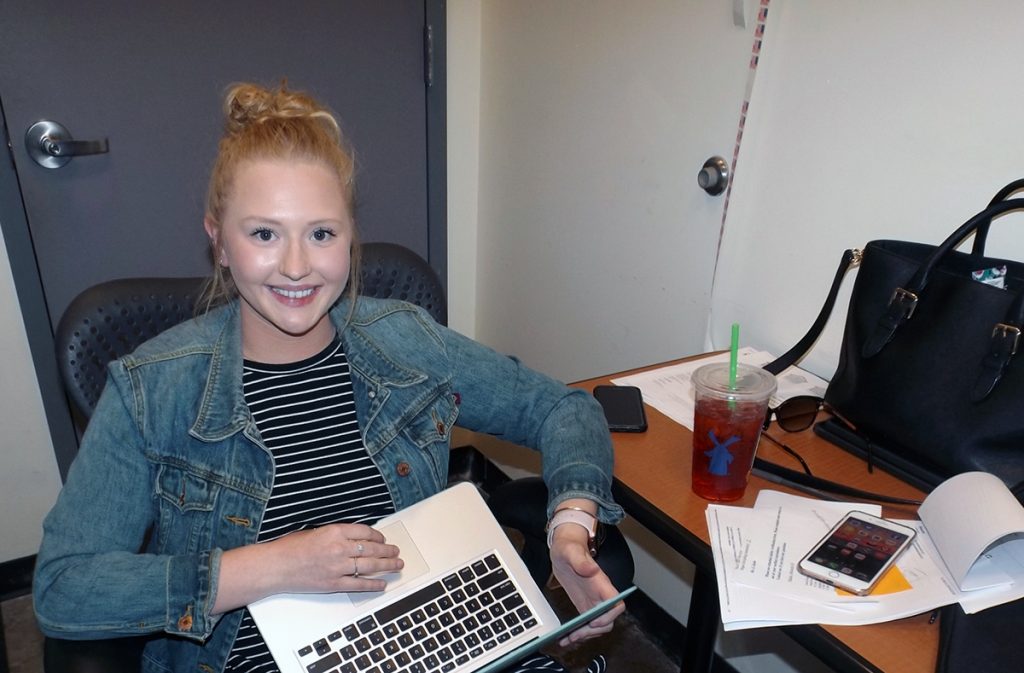Interview by Jacob Heiter
Henry Krewer
18 years of service

Henry Krewer is a kind-hearted and compassionate person who is willing to serve and is skilled at what he does. He works hard serving the homeless community at the Corpus Christi House, a day shelter, here in Boise, Idaho. He sees the needs of the homeless and he finds ways to provide for them.
Prior to working with the homeless, he had a rewarding career teaching chemistry and physics at Bishop Kelly High School. He says, “it was more of a reward than a challenge.” While teaching, he also worked at a soup kitchen where he was first acquainted with the homeless. He then worked at a community house where he learned that the homeless have nowhere safe to go in the daytime.
In the process of establishing the Corpus Christi House, Henry learned about the hospitality houses founded by Catholic worker and pioneer Dorothy Day. As he was building the initial framework, he met at Tim Cooper’s house, a founding board member of the Corpus Christi House, where they set out planning for the new day shelter. Everyone initially involved chipped in enough money to put in a 40 thousand dollar down payment to purchase an old plumbing house.
One generous donor contributed $50,000, while a church donated another $40,000, which helped pay off the mortgage. Corpus Christi opened to the public in December 2003. To this day, Henry is the only member of the original founding group who is still on the board of directors.
He warns us that, “the homeless population is getting younger,” which in turn brings with it a lot of different problems and challenges. “The homeless population is also increasing in numbers,” which is another challenge that we face. He says, ”When you are chronically homeless you get used to it, and it is very hard to get out of it.” He continues by saying, “It is impossible to get out of homelessness alone, they need help, because they don’t have the resources to do it alone.”
Homelessness is not a choice,
it is a condition.
Henry Krewer
“The homeless community is a refuge as well as a dangerous place. To be homeless you get into survival mode which makes it hard to be happy,” he says. He then mentions, “homelessness is not a choice, it is a condition.” He makes reference to many have lost their jobs, their homes, their cars and have gone to prison. Being homeless becomes their only option as I have learned from Henry.
“It is really difficult to work with the homeless,” Henry says. “Everyone has different needs which makes it hard to supply them.” He warns that, “the homeless do not need handlers or bosses, they need helpers.”
He has served the homeless for 18 years, in that time he has learned that serving the homeless does not give him 18 years experience, but it gives him 1 year of experience 18 times. This is because everything changes so rapidly. He remarks that, “the best assistance comes from churches.” and that, “they have a lot to offer the homeless.” He mentions the movie Roma as an example of how to serve and what it means to be a servant.
Jordan Pereira
Interview by Dawnlea Whitson

Recently, I was able to sit and talk with Interfaith Sanctuary Director Jordan Pereira. Before she started at Interfaith, Jordan was a full-time student and a part-time nanny. She started working at the shelter as a part-time case worker in August 2016. She said she was apprehensive and a little nervous at first. Jordan has experience with mental health issues and drug and alcohol addiction through family ties. She soon came to love this community.
In less than 3 years, as she worked her way up to Shelter Director, she has worked hard and far beyond what is expected of her. Interfaith Sanctuary and the homeless community are a passion of hers.
When asked about the people who stay at the shelter, Jordan stated, “they teach me new things everyday and have actually shown me how to run the shelter better and more efficiently.” She is amazed at the bond this community has and said they are a true family to each other.
The main worries she has are the barriers that people here face.
“Everyone has different needs and obstacles to overcome.”
Jordan is very hopeful that the shelter and Boise community will continue to come together. There are programs that have been and will be implemented to help the homeless rise above the challenge of overcoming their barriers. The homeless is only going to grow with the housing crisis, that we are all facing, and Jordan is up for the challenge.
In her role as Shelter Director, she comes across a lot of negativity. People get upset when she has to hand out disciplinary actions or when she has to implement new rules, but she does what she has to. She cannot show favor to any one per-son and treats everyone equally. Jordan truly cares about everyone who enters the shelter and will do everything she is capable of to assist them.
When asked what she hopes the readers will learn from the Word on the Street paper, Jordan said, “I hope that everyone will take a step back and imagine that they are walking in this commu-nities’ shoes and to not judge this community at first glance.”
As I sit here writing this article I think back to the Project Well-being classes that I am taking a part of at Interfaith Sanctuary. One of its main lessons is finding our passion and working towards the goals we have set to accomplish that passion. Jordan is a great example of that. She has found one of her passions, set goals and achieved them while still being able to learn and grow. I can’t wait to see what she will accomplish in the future.
Word on the Street is a collection of personal narratives, artwork, and poetry published by guests at Interfaith Sanctuary and Shelter in Boise, Idaho. It addresses the stigma of homelessness in and its material consequences for the population. Word on the Street represents the voices of Boise’s homeless community as a counter narrative against misrepresentations of themselves and a call for connection.
Its purpose is to bring awareness to the voices of homeless individuals and hope for motivating others through change. This paper is compiled and maintained by Project Well-being, a day program, at Interfaith Sanctuary and Shelter.
If you have a story about how homelessness, mental health and lack of resources affect you, please feel free to send them to wordonthestreet@interfaithsanctuary.org. If you would like to help the homeless, or fund this paper, please feel free to contact us.
Read more Word on the Street
Check out more articles from Word on the Street!
